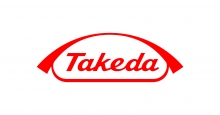Recent years has seen progress in the diagnosis and care of rare diseases, but health systems have more to do to integrate rare disease care into mainstream care. The good news is that doing so does not involve the wholesale re-invention of existing institutions, structures and processes, so much as adjusting them.
This report takes stock of current progress in the diagnosis and care of rare diseases, and considers what health systems need to do to further improve outcomes. We focus on evidence from seven countries: Australia, France, Germany, Japan, South Korea, Taiwan, and the UK (specifically England).
Connecting the dots
We highlight the areas where substantial progress has been seen, and areas where better integration are needed. The “dots” of success include the success of a regulatory environment that encourages research and development, and the success of shortening the diagnostic odyssey. While the “lines” of better integration include the need to integrate rare disease care into the mainstream, the need to reshape HTA appraisal processes to the realities of orphan drugs, and the need for more and better registries.
Working with patients
Enhancing the patient role in HTA appraisal and reimbursement decisions
How patients assess the range of impacts from a given treatment should have a crucial role in determining its value. However, most HTA processes were built around payers, industry and healthcare officials. Bringing the patient voice into decisions on value is therefore essential.
In Asia, meaningful participation is lacking. Japan’s HTA process has no formal patient role. In South Korea and Taiwan, patient input is so limited as to have no discernible impact. In other states, especially Australia, Germany and France, patients are consulted in a range of different a ways at various parts of the HTA process. However, a lack of transparency frustrates patients and their advocates.
Patients and registries
An obvious initial decision for any disease registry is what information to collect. This has a fundamental impact on the uses of the resultant data, and to be of value to patients, registries must collect information on the fields of most interest to them. Patients thus need a role in registry management, for these repositories yield the most benefit.
Bringing it all together
The report identifies several areas where, although some improvements have occurred, more needs to be done. They include:
-
Integration of rare disease awareness and care into the health system mainstream
-
The comfort of HTA programmes with the challenges of assessing the value of rare disease treatment
-
Improvements to patient registries and health system information to mine for real world evidence
-
Empowerment of the patient voice
Progress in these ways would help people living with rare diseases to receive better care, as well as reduce the high health system costs for this group of patients. But connecting the dots for those living with rare disease is not simply a matter of providing better care to the significant minority of the population with such conditions, as important as that is; the results of these efforts will mean better healthcare for all.





